Publications
Articles, publications, books, tools and multimedia features from the U.S. Institute of Peace provide the latest news, analysis, research findings, practitioner guides and reports, all related to the conflict zones and issues that are at the center of the Institute’s work to prevent and reduce violent conflict.
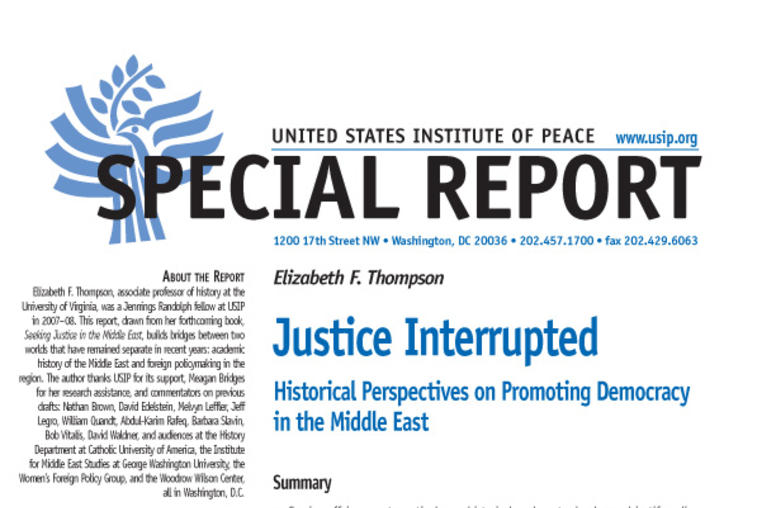
Justice Interrupted: Historical Perspectives on Promoting Democracy in the Middle East
Summary Foreign affairs experts routinely use historical analogy to develop and justify policy. However, as professional historians have long noted, attractive analogies often lead to bad policies. Officials regularly choose analogies that neglect or distort the historical case they aim to illuminate. Nonetheless, history can be used effectively in international relations To do so, practitioners must first recognize the difference between historical analogy and precedent. Historical p...
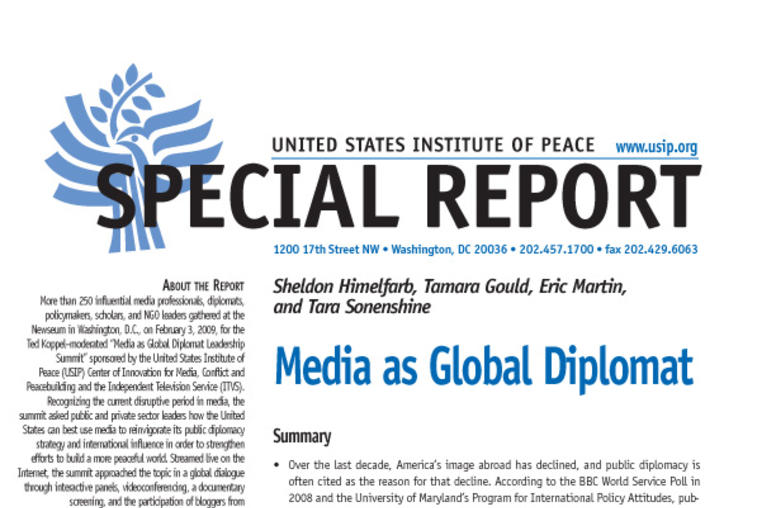
Media as Global Diplomat
It would be tempting to pronounce American public diplomacy dead in the 21st century. Where government once served as a powerful middleman for information and access, shaping prevailing messages about the United States, now the Internet connects two billion people directly. The result is a brave new world for multilateral international communication, with unprecedented power to connect and divide, spread truth and rumor, and organize dispersed individuals for good, evil, and everything in be...
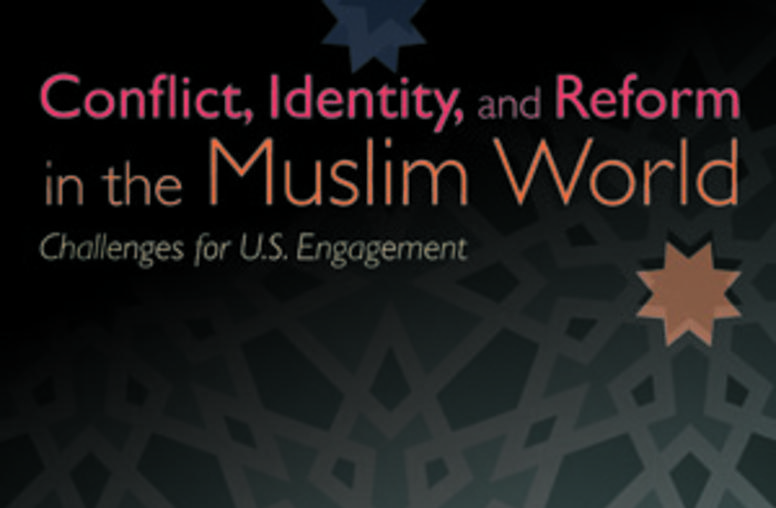
Conflict, Identity, and Reform in the Muslim World
Conflict, Identity, and Reform in the Muslim World highlights the challenges that escalating identity conflicts within Muslim-majority states pose for both the Muslim world and for the West, an issue that has received scant attention in policy and academic circles.
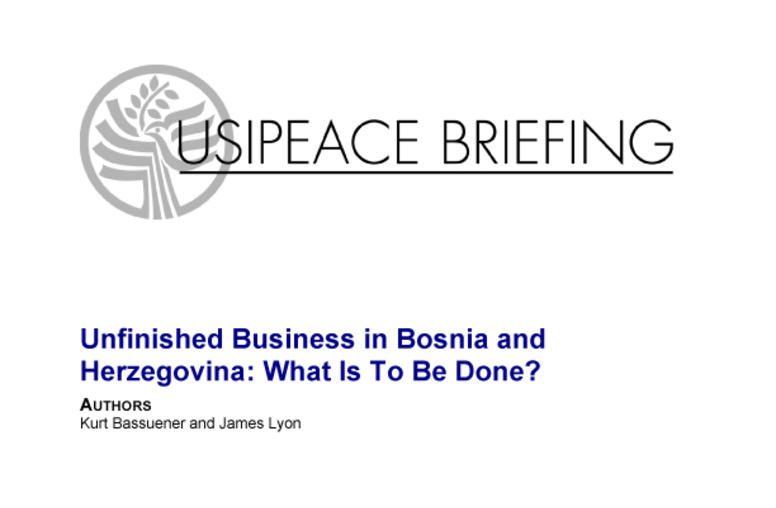
Unfinished Business in Bosnia and Herzegovina: What Is To Be Done?
This is the first of three papers USIP will publish this month on Bosnia, each with a different analytical perspective on what is happening in Bosnia and what needs to be done there to prevent a return to violence. We do this in the hope that these papers will generate a fuller debate on options that might be pursued by the U.S. government (USG), Europe and Bosnians.
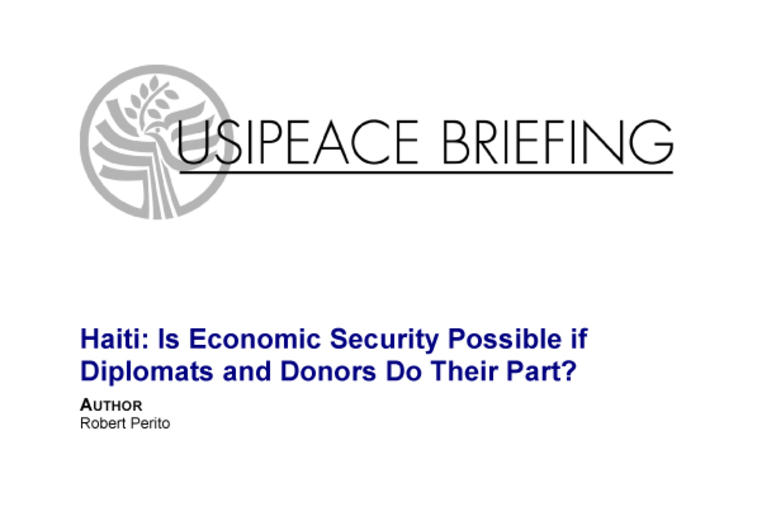
Haiti: Is Economic Security Possible if Diplomats and Donors Do Their Part?
In 2009, Haiti has been the subject of an unprecedented diplomatic initiative led by the United Nations. In rapid succession, Haiti received visits from the UN Secretary General Ban Ki-moon, the UN Security Council, former President Bill Clinton and Secretary of State Hillary Clinton and numerous senior delegations from Caribbean and South American countries
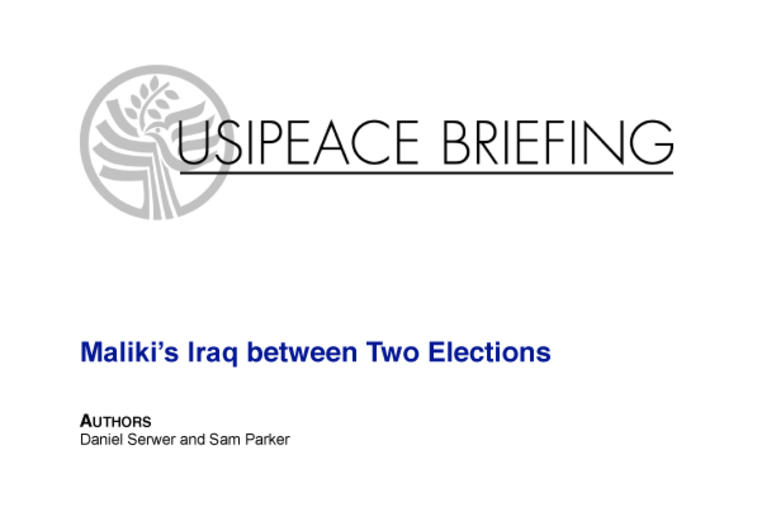
Maliki's Iraq between Two Elections
In meetings conducted in Baghdad in May 2009, senior Iraqi leaders indicated how they interpret January’s provincial election results, expressed concerns about the recent downturn in security, lamented the tremendous financial pressure the government is feeling due to the decline in oil prices, and projected their hopes for national elections slated for 30 January 2010.
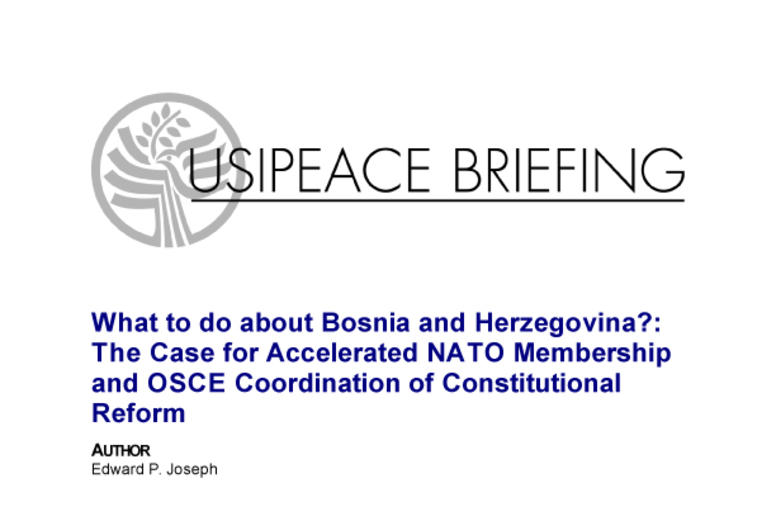
What to do about Bosnia and Herzegovina?:
The policy choice in Bosnia revolves around one question: how much time does the country have? If one believes that the country is reasonably stable, that another election will produce more cooperative leaders, and that Bosnia's "EU future" is assured, then the way forward is clear: cede international leadership in Bosnia from the U.S. to the European Union.
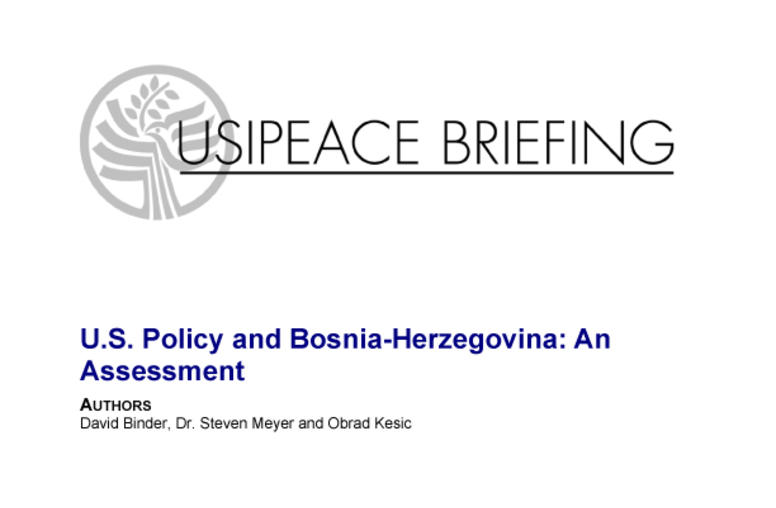
U.S. Policy and Bosnia-Herzegovina: An Assessment
This is the final of three papers USIP will publish on Bosnia-Herzegovina, each with a different analytical perspective on what is happening in Bosnia and what needs to be done there to prevent a return to violence. We hope that these papers will generate a debate on options that might be pursued by the U.S. government (USG), Europe and Bosnians. These papers will be discussed at a public forum at the United States Institute of Peace on June 25, 2009.
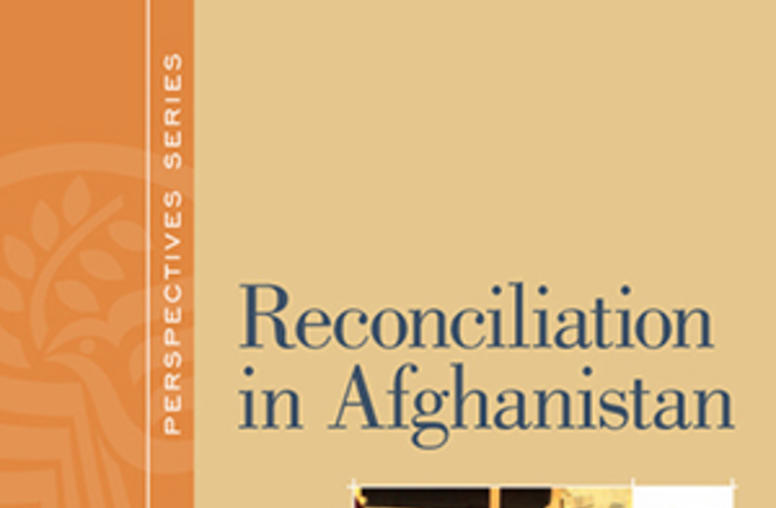
Reconciliation in Afghanistan
In this timely and thorough volume, Michael Semple analyzes the rationale and effectiveness post-2001 attempts at reconciliation in Afghanistan. He explains the poor performance of these attempts and argues that rethinking is necessary if reconciliation is to help revive prospects for peace and stability in Afghanistan.
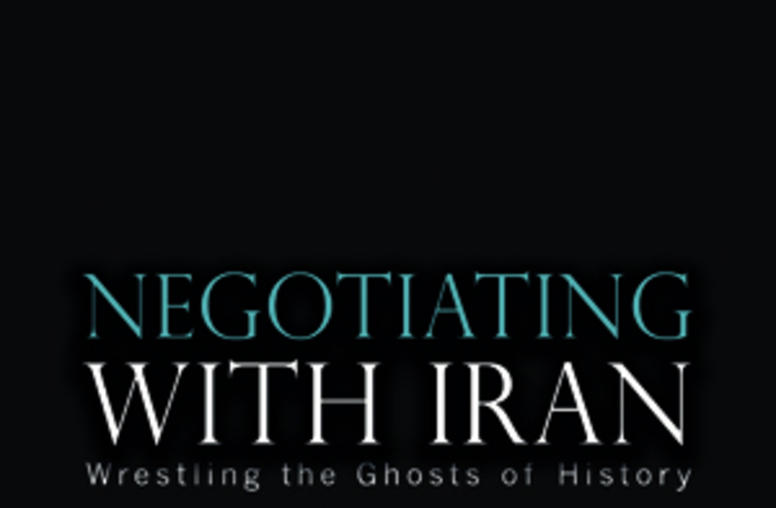
Negotiating with Iran
John Limbert steps up with a pragmatic yet positive assessment of how to engage Iran. Through four detailed case studies of past successes and failures, he draws lessons for today’s negotiators and outlines 14 principles to guide the American who finds himself in a negotiation—commercial, political, or other—with an Iranian counterpart.